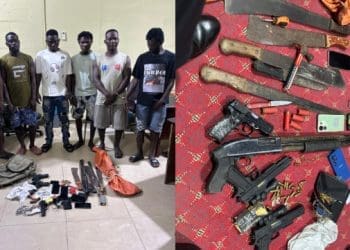Over 200 delegates gathered at the Second Purple for Preterm Summit on 12 November 2025 at Wesley Towers, Accra.
The Summit, a national multisectoral advocacy platform on prematurity, was held to commemorate World Prematurity Day, observed globally on 17 November.
Participants included health professionals from GHS, CHAG, SOGOG, the Paediatric Society of Ghana, psychologists, academia, civil society groups, faith leaders, developing partners, the media and parents of preterm babies.
The Summit was co-chaired by Professor Afua Hesse, Dr. Ebenezer Appiah-Denkyirah, and Ms. Selina Bentoom, who provided leadership throughout the discussions and engagements.
Dignitaries present included the Deputy Minister for Health, the Former Deputy Director-General of the World Health Organisation, the Immediate Past Presiding Bishop of the Methodist Church Ghana, Rev. Steve Mensah, Rev. Dr. Joyce Aryee, and several senior policy and health leaders.
Strategic partners for the event included the Methodist Church of Ghana and WaterAid Ghana.
Hosted by the African Foundation for Premature Babies and Neonatal Care (AFPNC) in collaboration with the Accra College of Medicine, the Summit explored how innovative financing models can improve healthcare quality in low-resource settings, and how global financing shifts are shaping investment strategies in developing countries.
The overarching goal was to strengthen sustainable financing and improve survival outcomes for premature and small babies in Ghana.
Key highlights
Preterm and small babies remain Ghana’s most vulnerable population, facing the highest mortality risk.
Neonatal mortality reduction has been steady but slow.
National financing for neonatal care continues to face declines and competing national priorities.
Parents experience psychological stress, stigma and high out-of-pocket NICU expenses.
Persistent gaps remain in NICU infrastructure, equipment, specialist staffing and cross-disciplinary teamwork.
Summit Communiqué (Resolutions)
Delegates resolved to:
Develop a national preterm care policy, including minimum NICU equipment standards.
Increase the NHIS quota to cover essential NICU services such as oxygen and high-cost medications, especially for low-income families
Expand the NHIA benefits package to include comprehensive preterm care.
Equip all public hospitals with basic life-saving neonatal equipment.
Establish neonatal Quality Improvement Teams in all hospitals.
Engage psychologists to support families through trauma and emotional stress.
Provide structured psychosocial support programmes for parents and caregivers.
Strengthen public–private partnerships and enhance CSO leadership in neonatal advocacy.
Ring-fence neonatal funding within the national health budget.
Prioritise WASH interventions and training in health facilities.
Mobilise local funding sources, including private sector, faith-based organisations and business communities.
Stronger Insights on Financing Neonatal Care
The Summit highlighted clear principles for closing the financing gap:
Funders support practical solutions, not despair—every challenge must be paired with a strategy.
Advocacy must speak to the heart (human stories), head (strategic clarity) and pocket (clear costings and value for money).
Boldly asking for support remains key to successful mobilization.
Financing is relational—people give to people they trust.
Sustainability depends on gratitude, transparency, accountability and consistent reporting.
True progress demands diversifying funding sources and avoiding short-term project cycles, weak accountability, political interference and poor communication.
Conclusion
The Summit reaffirmed Ghana’s collective commitment to ensuring that no premature baby dies from preventable causes. Innovative financing models, stronger investment and coordinated multi-sector collaboration are essential to help preterm babies in Ghana survive and thrive.
AFPNC and its partners—supported by strategic collaborators such as the Methodist Church of Ghana and WaterAid Ghana—remain dedicated to strengthening neonatal care systems and protecting Ghana’s smallest and most vulnerable citizens.












